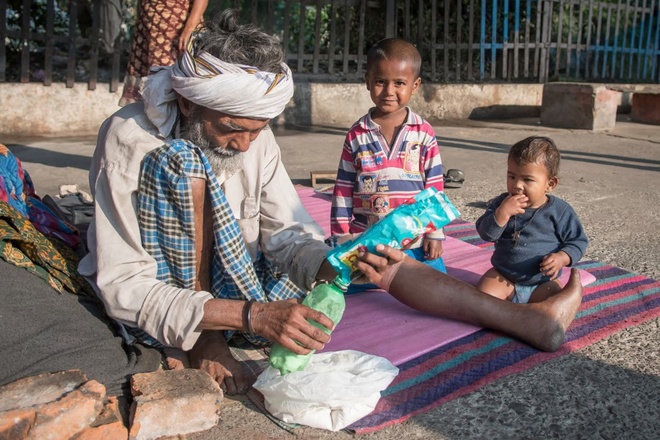Dalits in India reclaim dignity from naming

An increasing number of Dalits are against the use of ugly, derogatory names for their newborn babies.
According to a tradition dating back hundreds of years in rural areas, every time a child is born, the family goes to Hindu temples to ask for a name for their child.
For the Dalits, who belong to the lowest class in society, names are often derogatory, or milder rather than sarcastic or completely meaningless. This naming is like a custom that more and more Dalit people oppose, according to the South China Morning Post .
Harlal Bairwa is a Dalit who founded the Garima Bhawan movement. In villages, the movement builds rooms with hundreds of names and their meanings plastered on the walls for families to choose for their newborns.
In poor, backward areas like Chittorgarh, it tends to be more difficult to get people to stop using ugly, offensive names.
“In less developed states, education and awareness are low, Dalit parents don’t even recognize offensive names. They simply accept the names given to them. We have to make them understand first,” said Mr. Bairwa.
Bairwa said he had to make Dalit parents understand that “God” did not give them names through Hindu priests, who are from the upper echelons of society.
Once Dalit parents understand they can indeed change their child’s name, they are encouraged to go to Garima Bhawan for name advice.
Names play an important, sometimes powerful, role in India. 90% of the names reveal the social class, religion, even the place of residence of the bearer. Discrimination based on surname, which begins at birth, can have an impact on an individual’s life.
The division of society into classes is an illegal practice in India. However, social stigma and prejudice against Dalit people still exist. Some Dalits avoid using surnames, using only their first names, avoiding recognition of their caste.
“If their names are not respected, what good can they have in their later lives? It will be painful for children to be called derogatory names for the rest of their lives,” said Mr. Bairwa. speak.
At the Garima Bhawan, every time a family chooses a new name for their child, Mr. Bairwa will hold a small ceremony with tea and cookies. The family will give a small gift, usually cash, to the child. To date, about 200 children have been given new names in this way.
Hindu dignitaries have begun to react to Garima Bhawan’s activism.
“They angrily questioned what right we had to hold ceremonies like naming, which they acquired. They said the naming was based on astrology and religious documents,” said Mr. Bairwa.
Names have such a big impact that in 2021, the Dalit Chamber of Commerce proposed to hide the names of candidates participating in the annual civil service contest to ensure fairness and protect Dalit people from class discrimination, especially in the interview round.
In the state of Maharashtra, the local government has been campaigning for years against the practice of giving offensive names to girls in order to eliminate discrimination on the basis of gender. The most commonly used name is nakoshi, which means “unwanted”.
The purpose of the name “unwanted” is that if a child’s parents make it clear that they are not satisfied with their child’s gender, nature may grant their wish with a baby boy in the next birth. according to the.
Courtesy : Zing news
Note: This news piece was originally published in zingnews.vn and used purely for non-profit/non-commercial purposes exclusively for Human Rights







